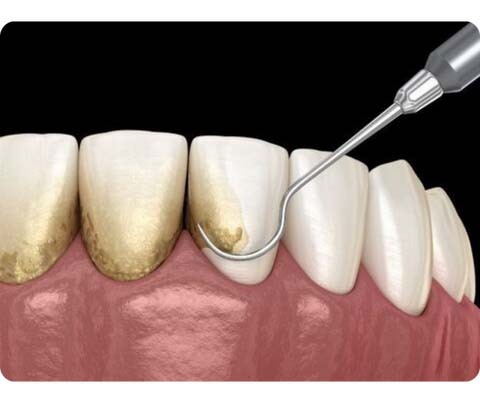Periodontal Disease
What is Periodontal Disease (Gum Disease)?
Periodontal/gum disease is the leading cause of tooth loss in adults today. The term gum disease can be misleading because it makes people think that only the gums are affected. The truth is that periodontal disease is primarily a disease of the bone.
Periodontal disease, or gum disease, is a common but serious oral health condition. It is often an inherited condition caused by a build-up of plaque and bacteria or as a complication from another illness like diabetes.

The following signs may indicate gum disease:
- Bad breath
- Bleeding gums
- Loose teeth
- Temperature sensitivity
Periodontal diseases must be dealt with immediately. Don’t delay as waiting can cause you to advance to the later stages of gum disease which can cause treatment to be more intensive.
Some systemic diseases under periodontal disease include:
.jpg)
- Inflammation
- Heart disease
- Arthritis
- Diabetes
- Cancer
This disease can affect anyone, regardless of age, gender, or lifestyle, and requires immediate treatment to prevent further complications and ensure a higher chance of recovery.
Those with high-risk factors for gum disease or symptoms of gum disease should visit their dentist immediately to determine whether periodontic care is right for them.
The effects of untreated gum disease can be severe and include:
- Tooth and bone loss
- Gum recession
- Abscess formation
- Change in the appearance of the mouth
- Difficulty eating or speaking
- Other systemic health issues
Periodontal Disease Treatment
Did you know that Periodontal Disease Treatment is the only thing you can do to treat your gum disease?
Taking prompt action and seeking professional dental care can significantly improve the outcomes of Periodontal Disease Treatment, helping to halt the progression of the disease and safeguarding your oral health in the long run.
Bonomo Periodontics treats your gum disease with the following services:
- Scaling and root planing
- Dental Implants
- Extraction/Bone Grafting
- Soft Tissue Grafting
- 3D Imaging and Digital Imaging
- Biopsies
Gum disease is progressive and if it is left untreated it will eventually result in tooth loss.

